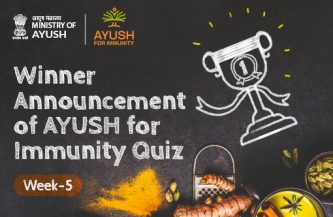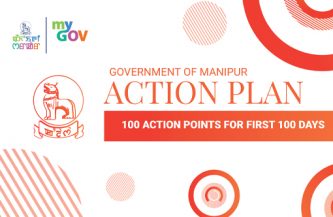Promoting Ayush and Unani Medicine – A Leap Towards Holistic Healthcare

Under the visionary leadership of Hon’ble Prime Minister Narendra Modi, the Ministry of Ayush was established in 2014 to promote traditional Indian medicine systems on a global scale. AYUSH stands for Ayurveda, Yoga and Naturopathy, Unani, Siddha, Sowa Rigpa, and Homeopathy. This ministry focuses on integrating these systems into modern healthcare, emphasizing holistic well-being and preventive care. PM Modi’s advocacy has positioned India as a global leader in traditional medicine and wellness, bringing Ayush practices to the forefront of healthcare.
The Ministry and its Research Councils
The Ministry of Ayush supervises five autonomous research councils, each dedicated to evidence-based research in their respective fields of medicine. Among these, the Central Council for Research in Unani Medicine (CCRUM) stands out as a significant contributor to the preservation, promotion, and globalization of Unani Medicine. Through extensive research, CCRUM has played a pivotal role in validating Unani practices and ensuring their acceptance within modern healthcare frameworks. The Central Council for Research in Unani Medicine (CCRUM) is an autonomous body under the Ministry of Ayush, Government of India. It has been at the forefront of advancing Unani medicine since its inception in 1978. As the apex organization for Unani research, CCRUM focuses on both fundamental and applied aspects of this traditional system of medicine. With a network of 24 research centres across the country, the Council has garnered recognition for its achievements, including 19 patents, ground-breaking research innovations, and a wealth of scientific publications, reflecting the dedication of its scientists and technical experts.
Key Research and Development Initiatives by CCRUM
- Survey and Cultivation of Medicinal Plants Programme
The CCRUM conducts comprehensive surveys of medicinal plants across various regions in India. This program focuses on collecting, identifying, and documenting plants used in traditional medicine, while also gathering ethno-pharmacological data from tribal and rural communities. Research centres implementing this program include:
- National Research Institute of Unani Medicine for Skin Disorders (NRIUMSD), Hyderabad
- Regional Research Institutes of Unani Medicine (RRIUM) in Chennai, Srinagar, Bhadrak, and Aligarh
- Drug Standardization
The Drug Standardization Research Programme develops pharmacopoeial standards for Unani medicines to ensure safety, efficacy, and quality. This involves creating Standard Operating Procedures (SOPs) and conducting in-depth evaluations of single and compound drugs listed in the National Formulary of Unani Medicine (NFUM). Key research centres for this program include:
- Drug Standardization Research Institute (DSRI), Ghaziabad and New Delhi
- NRIUMSD, Hyderabad
- RRIUM centres in Chennai, Srinagar, and Aligarh
- Pre-Clinical and Clinical Research
Pre-Clinical Research: CCRUM conducts pre-clinical safety and pharmacological studies on classical Unani drugs in collaboration with academic and scientific institutions. Centers involved include:
- NRIUMSD, Hyderabad
- RRIUM, Srinagar
Clinical Research: The council validates the safety and efficacy of Unani treatments through randomized controlled trials (RCTs) and disease-specific studies at various centers, including:
- NRIUMSD, Hyderabad
- Central Research Institute of Unani Medicine (CRIUM), Lucknow
- RRIUM centers in Chennai, Bhadrak, Patna, and others
- Clinical Research Units (CRUs) across Bengaluru, Meerut, Bhopal, and more
- Fundamental Research
Fundamental research at CCRUM focuses on validating the core concepts of Unani medicine, such as humours (Akhlāt) and temperaments (Mizāj). Studies explore correlations between these concepts and diseases like hypertension, diabetes, gastritis, psoriasis, and vitiligo. This research is primarily conducted at NRIUMSD, Hyderabad.
- Literary Research
CCRUM’s literary research program aims to preserve and digitize ancient Unani manuscripts, many of which are housed in private and public libraries. The program is executed in collaboration with institutions like HAKILHRUM and Jamia Millia Islamia, New Delhi, to ensure the accessibility and global recognition of Unani’s rich heritage.
- Outreach Activities
- Mobile Clinical Research Programme: Brings healthcare to underserved rural and urban populations.
- Mobile Healthcare Program: Operates under the Scheduled Caste Sub Plan (SCSP) and Tribal Sub Plan (TSP) to provide free Unani healthcare and health awareness.
- School Health Programme: Improves children’s health through check-ups, treatments, and awareness campaigns on topics like oral hygiene and nutrition.
Education and Capacity Building
CCRUM has established postgraduate centres at NRIUMSD Hyderabad and RRIUM Srinagar, offering courses in Moalajat (Medicine) and Ilmul-Advia (Pharmacology). To foster research interest, the Studentship Program for Unani Research (SPUR) provides undergraduate students with opportunities to gain hands-on experience in research methodologies.
Global Collaborations and Technological Advancements
CCRUM has signed MoUs with institutions in countries like Iran, Tajikistan, Bangladesh, and South Africa to foster academic and research exchanges. It has also contributed significantly to WHO initiatives, including the development of benchmarks for Unani medicine training and practice. Notably, Unani morbidity codes have been incorporated into the International Classification of Diseases (ICD-11).
Technological initiatives include:
- Ayush Grid Activities: Digitization of healthcare processes through platforms like A-HMIS and NAMASTE Portal.
- Mobile Applications: Development of apps on temperament analysis, treatment guidelines, and common Unani remedies.
- Integration with Ayushman Bharat Digital Mission (ABDM): Aligning Unani healthcare facilities with India’s digital health infrastructure.
Pioneering Holistic Healthcare
By aligning traditional knowledge with modern scientific methodologies, CCRUM has enhanced the global acceptance of Unani Medicine. Through clinical trials, drug standardization, and international collaborations, the council has significantly contributed to the credibility and modernization of this ancient system. Its efforts are paving the way for integrating Unani Medicine into global healthcare frameworks, ensuring its recognition as a vital component of holistic health solutions.
Author: Dr. N. Zaheer Ahmed, DG, CCRUM





